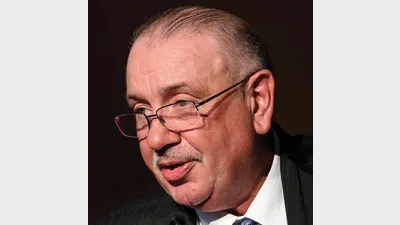Objectively, Hayne barely earned a pass mark



As is frequently the way with such events, much was made of the 12-month anniversary of the handing down of the recommendations of the Royal Commission into Misconduct in the Banking, Superannuation and Financial Services industry which saw much praise being heaped on the Commissioner, Kenneth Hayne.
The underlying theme adopted by many commentators was that the Royal Commission, under the leadership of Hayne, had succeeded in identifying a multitude of sins in financial services and then recommending a series of measures which would bring the industry, particularly the financial planning industry, to a level acceptable to the broader community.
That theme flatters Hayne. Stripped back to the fundamentals, the Royal Commission can be seen to have traversed little that was not already known and was already being addressed by the Government, the regulators and the industry itself and to have stopped doing its work before it might have actually reached into new areas.
Fee-for-no-service, the issue which appeared to fascinate and absorb Hayne and his Counsel Assisting, had already been identified by the Australian Securities and Investments Commission (ASIC), just as the question of phasing out grandfathering had also been identified, along with the frequency of fee reviews under the terms of the Future of Financial Advice (FoFA) changes.
Then, too, the Government had already put in place a timetable and methodology for reviewing the success or failure of the Life Insurance Framework – yet this did not stop Hayne from moving beyond his brief to recommend dialling down life commissions to zero.
Of significance is the fact that, on the first occasion a Royal Commission referral was put to the test in the Federal Court – the Australian Prudential Regulation Authority’s (APRA) case against IOOF – the regulator failed to make its case and ended up paying costs.
However, such were the political priorities of early 2019 that the Government, via the Treasurer, Josh Frydenberg, leapt upon Hayne’s recommendations and committed the Government to an almost unquestioning rubber-stamping of their contents and adherence to an implementation timetable ending in December, this year.
In the pursuit of this almost unquestioning objective, the Government has seen fit to trample across some of its own measures, not least allowing a modicum of industry self-regulation in the form of code-monitoring as part of the broader Financial Adviser Standards and Ethics Authority (FASEA) regime, and accepting that despite its faults and the efforts of some players to ‘game’ the system, the FoFA changes were working and may have been made to work even more effectively.
Where the Royal Commission got it right was in its analysis that the financial services regulators could have done much better. Where the Royal Commission erred was in Hayne’s decision not to continue its probe, particularly with respect to the operations of the superannuation sector.
And as Frydenberg continues his efforts to meet his self-imposed implementation timetable, the financial planning industry is left to ponder what it will end up costing them in terms of time, money and higher industry levies to pay for the single disciplinary body which was recommended by Hayne despite the Government having previously encouraged the industry to pursue the establishment of code-monitoring bodies.
Political analysis suggests that most financial planners tend to support Liberal/National Party Coalition Governments, there is precious little evidence this Government is supporting them.
Recommended for you
In this episode of Relative Return Insider, host Keith Ford and AMP chief economist Shane Oliver discuss the latest shock consumer price index numbers, which rose to 3.8 per cent in October, as well as the shifting US market and calls for super funds to invest in infrastructure projects.
In this episode of Relative Return Insider, host Keith Ford and AMP chief economist Shane Oliver discuss the Reserve Bank of Australia’s cautious stance in response to persistent inflation, subdued growth prospects, and political shifts affecting the nation’s journey towards net zero emissions.
In this episode of Relative Return, host Laura Dew speaks with Rachel White, head of financial adviser services at Vanguard about how advisers can help Australians to feel confident in retirement.
In this episode of Relative Return Insider, host Keith Ford and AMP deputy chief economist Diana Mousina take a look at the Reserve Bank’s unanimous decision to leave rates on hold on Melbourne Cup Day and whether future cuts are still on the cards.








